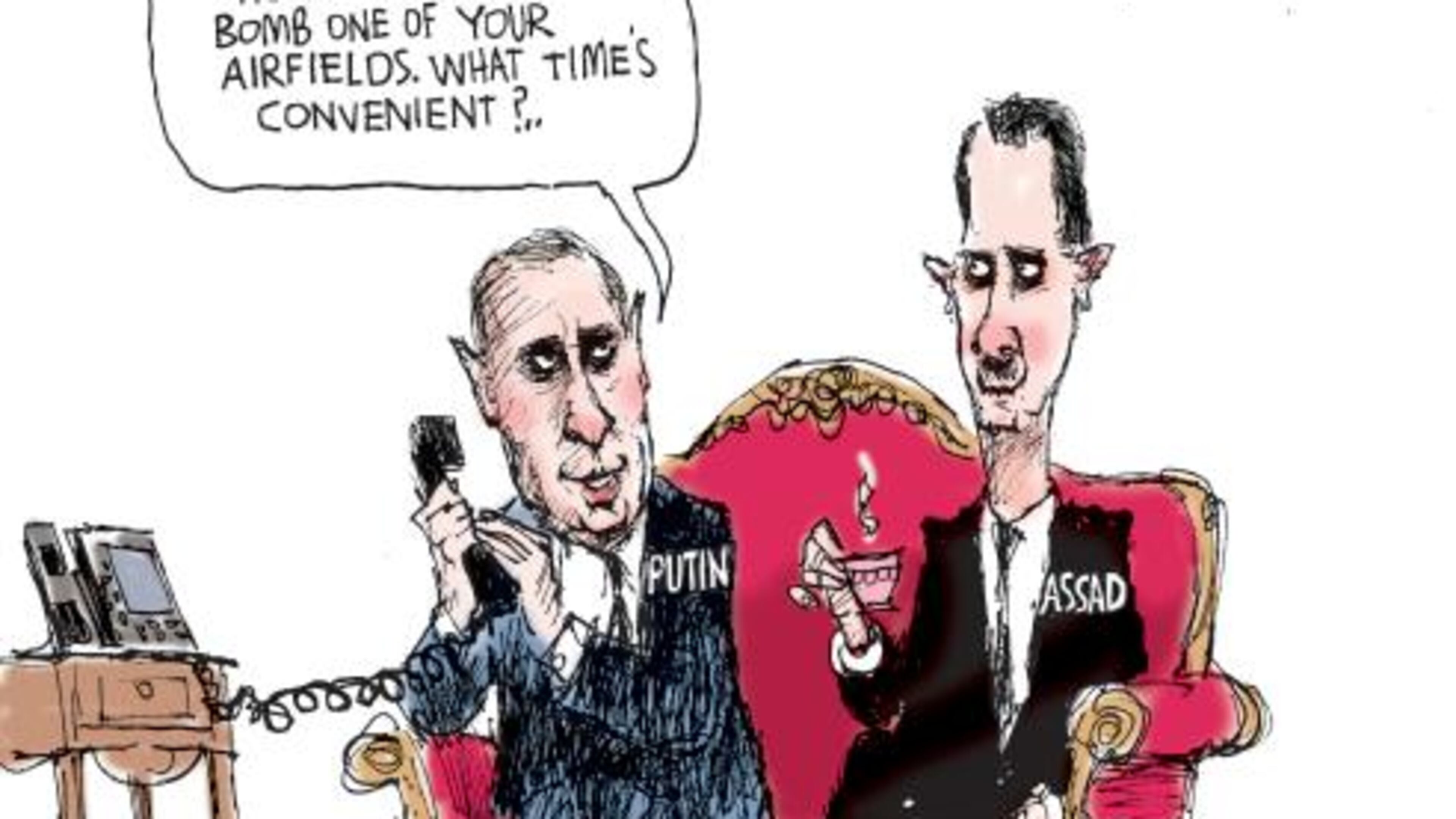Opinion: Attack on Syrian airfield changes very little

So President Trump launches a much-ballyhooed air strike against a Syrian airfield used to launch a chemical weapons attack, a decision that his fellow Republicans quickly rush to embrace as proof of a new American resolve.
"I think that this is an important, decisive step that was taken," said U.S. Sen. Marco Rubio on the night of the attack. "It is not a message. It is an actual degrading of the capability of the Syrian regime to carry out further chemical attacks against innocent civilians. ... There is now an American president willing to do what it takes."
Or, as it turns out once the smoke has cleared, not so much.
We now know that several hours before the attack was launched, U.S. officials had told Russian and thus Syrian officials that it was coming and that the target would be Shayran airfield. That was wise in the sense that it helped to avoid Russian casualties, but it also allowed equipment and personnel to be moved to safety and significantly undercut the military effectiveness of the operation.
The attack did not target suspected sarin gas depots at the airfield, nor did it target the field's Russian-supplied air-defense system, again for good reason. The only Syrian aircraft damaged in the attack were reportedly those that were already inoperable and could not fly away in time. And while the 59 Tomahawk missiles did extensive damage to concrete structures at the airfield, the cost of repairing those facilities will be considerably less than the $100 million that we spent buying those missiles. The airfield's runways were left largely untouched.
In short, rather than change the military equation or degrade Syria's military, the attack highlighted and confirmed the extreme limitations of U.S. military options against Assad. Indeed, Syrian jets were once again taking off and landing at the Shayrat airfield within hours of the attack, dropping bombs on the same village that had been hit earlier with sarin gas.
That too sent a message. As translated by Sen. Lindsey Graham: "Here's what I think Assad's telling Trump by flying from this base: 'F you.'"
I can't help wondering: What would conservatives be saying today if Barack Obama had pulled what turns out to be a hapless, militarily ineffectual publicity stunt, particularly at a point when he was struggling badly in the polls? The question is especially pertinent given the clear lack of strategy or goal driving the attack. Even now, nobody knows what that strategy might be. At the United Nations, Ambassador Nikki Haley is describing the attack as the beginning of a U.S. effort to oust Assad, while Secretary of State Rex Tillerson is once again stressing that the United States will leave Assad's fate to the Syrians.
In a competent administration that actually had a plan, that scale of public contradiction would be unthinkable. It could happen only in a policy vacuum, and everyone in the diplomatic world recognizes that vacuum, including the Assad regime, and is poised to take advantage.
Four years ago, you may recall, international pressure after a previous gas attack on civilians forced Syria to surrender thousands of tons of chemical weapons and their precursors to an international commission, which then destroyed the material. The Syrian government, Russia and the Obama administration all claimed at the time that all of Syria's supplies had been declared and surrendered.
Was that true? We don't know. The sarin gas used last week certainly could have been secretly retained for later use by the Assad regime. On the other hand, sarin degrades pretty quickly and is relatively easy to produce, meaning that Assad might have surrendered everything back in 2013 and then secretly restarted a smaller-scale chemical-weapons program.
We do know that in the four years between that 2013 agreement and last week's attack, Assad had not used nerve gas such as sarin against his own people. He has used barrel bombs and other brutal means, including occasional use of readily available chlorine gas, but he did nothing to publicly call into question his adherence to the chemical weapons ban.
Something happened to change that calculation. As Rubio, John McCain and others have pointed out, that something" was probably the Trump administration incompetence and lack of seriousness.
